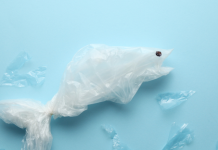Contaminants Affecting Your Tap Water Quality
Recent research by the non-profit Environmental Working Group revealed that up to 110 million Americans could have drinking water that is contaminated with PFAS, and there is no legal limit to regulate these chemicals.
What Are PFAS?
Per- and polyfluoroalkyl substances are a group of synthetic chemicals that are known as “forever chemicals” because they take so long to biodegrade. They are molecules made of bonds between fluorine and carbon, which are very hard to break, and therefore persist in our bodies and environment for many years. While there are over 3,000 of these synthetic chemicals in the group, some of the most common ones millions of Americans are exposed to are PFOS and PFOA.
They can be found in a wide variety of everyday products including non-stick cookware, food packaging for fast food wrappers or microwavable popcorn bags, as well as clothing and furniture products that use PFAS for their water and oil repellant properties. However, PFAS can also end up contaminating our ground water when used in landfills and wastewater treatment facilities, and also in fire retardants for military runways and by fire fighters at training facilities.
PFAS In Our Water
In fact, a new film called Dark Waters (2019) is bringing PFAS front and center for public discussion. The film stars Mark Ruffalo, who plays a lawyer that uncovers the negligence of the chemical company Dupont (the maker of Teflon), which is alleged to have been responsible for the devastating effects of widespread PFOA contamination in a rural West Virginia community located next to one of its manufacturing plants. The film is based on the real-life story of Rob Bilott (portrayed by Ruffalo), who takes on the case of a farmer who believes DuPont knowingly contaminated the local water supply. In what is shaping up to be a modern-day Erin Brockovich (2000), Dark Waters tells the story of a 15-year battle that resulted in a DuPont losing a class-action lawsuit and settling $671 million for around 3,550 personal injury claims.
However, the problem is far from over. Despite manufacturers promising to reduce or replace PFAS with an alternative, these ‘forever chemicals’ are here to stay for quite some time.
How Can PFAS Affect Your Health?
Unfortunately, PFAS can be extremely harmful to human health. These synthetic chemicals find their way into the bloodstream and build up in the liver and kidneys. There is a growing body of research showing that high levels of PFAS in the body are connected to an increased risk of cancer, reproductive and developmental issues, thyroid, liver and kidney disruption, as well as weakened childhood immunity and other health problems.
Recent news from the Centers for Disease Control (CDC) reveals that most Americans have some degree of PFAS in their blood, and so the question is now one of how much exposure is toxic. To that end, the Environmental Protection Agency in the US and other regulatory bodies have attempted to set limits to the quantities allowed in drinking water, attempting to determine how much is safe for human consumption. However, attempts have largely failed or been controversial, with the U.S. Department of Health and Human Services’ Agency for Toxic Substances and Disease Registry determining that the EPA’s regulations were 6 to 10 times higher than the acceptable limit.
Protect Your Tap Water Quality with AquaTru
The good news is that PFAS can be removed from drinking water. According to the CDC, the use of water filtration systems has been shown to reduce blood PFAS levels in people exposed to PFAS in their drinking water.
Reverse osmosis technology has long been known as the gold standard in water purification to remove virtually all contaminants from tap water. However, traditional reverse osmosis technology is usually very expensive, easily costing well over $1000 for in-home systems that require you to install it into your plumbing. And the dirty secret of under-the-sink reverse osmosis systems is that they are extremely wasteful: for every 1 gallon of pure water produced by an under-the-sink reverse osmosis system, up to 4 gallons of waste water go straight down the drain.
AquaTru does things differently. Using its patented Ultra Reverse Osmosis® Technology, AquaTru efficiently purifies your water and is certified to NSF standards by IAMPO to remove 83 contaminants including PFAS—no plumbing or installation required. In fact, AquaTru is the first and only countertop reverse osmosis purifier that is certified to remove PFOA and PFOS from your drinking water.
Learn more about AquaTru here.






